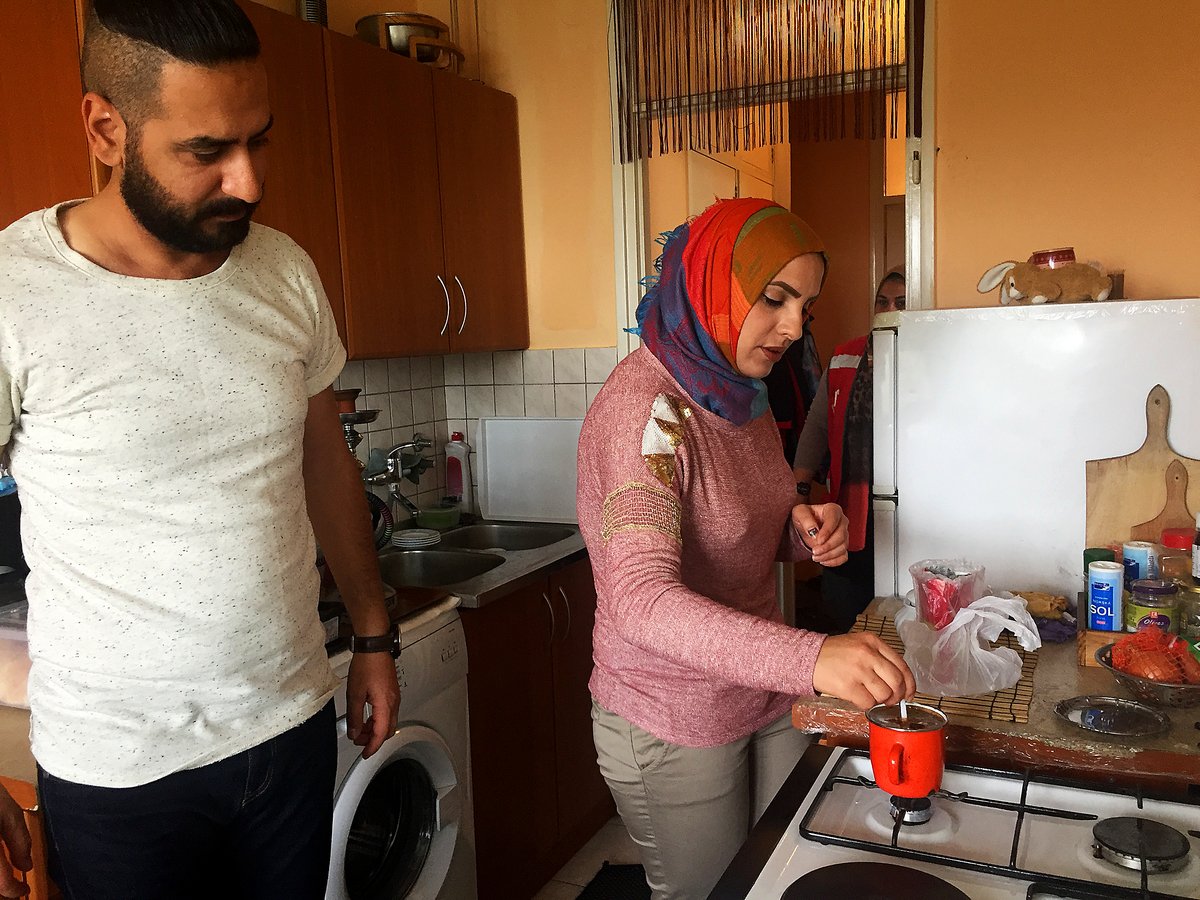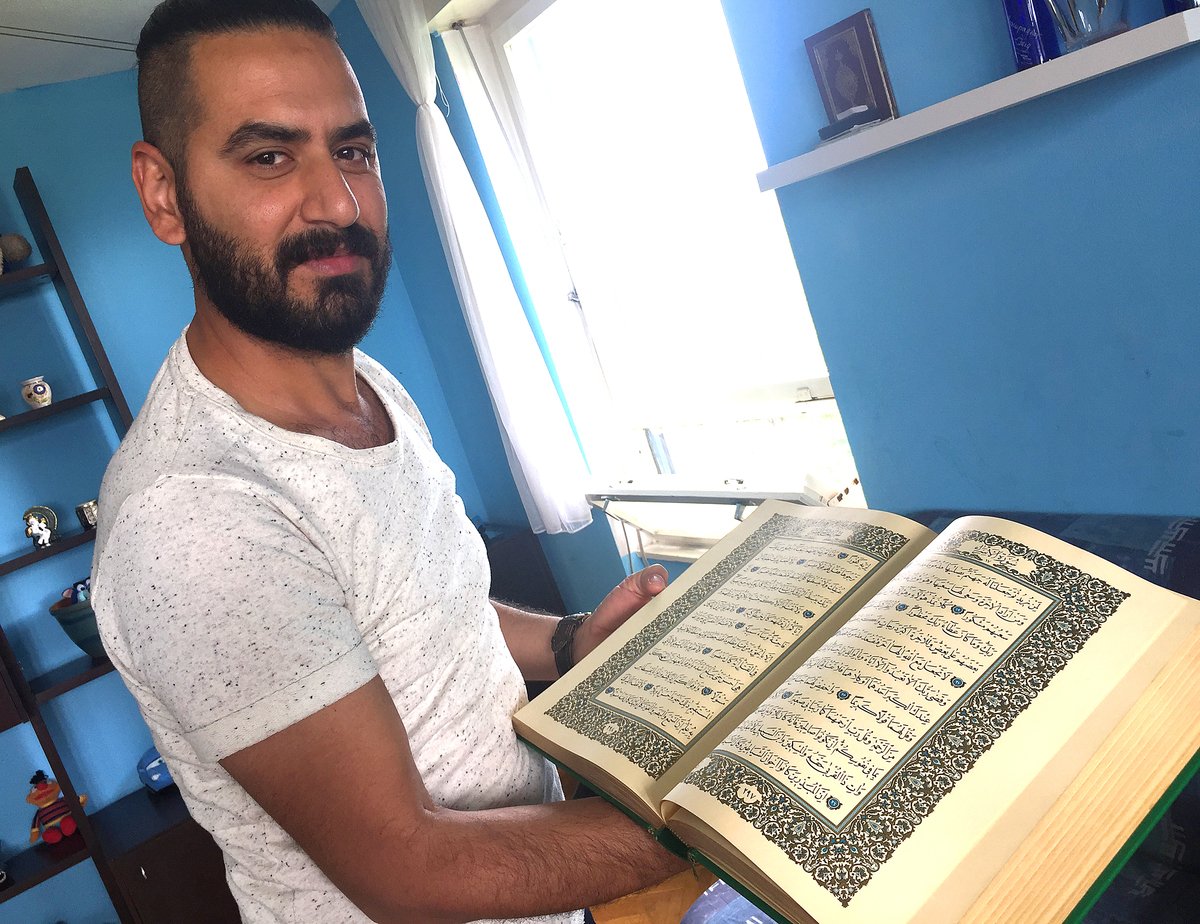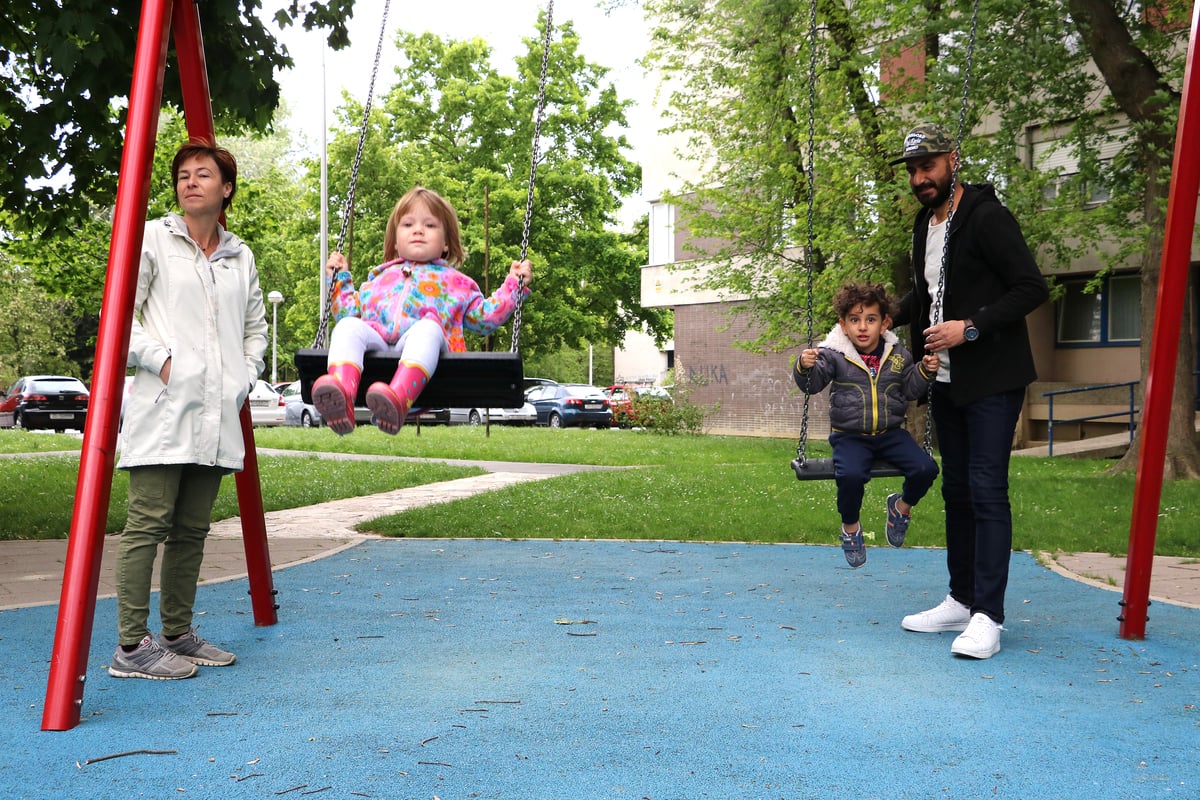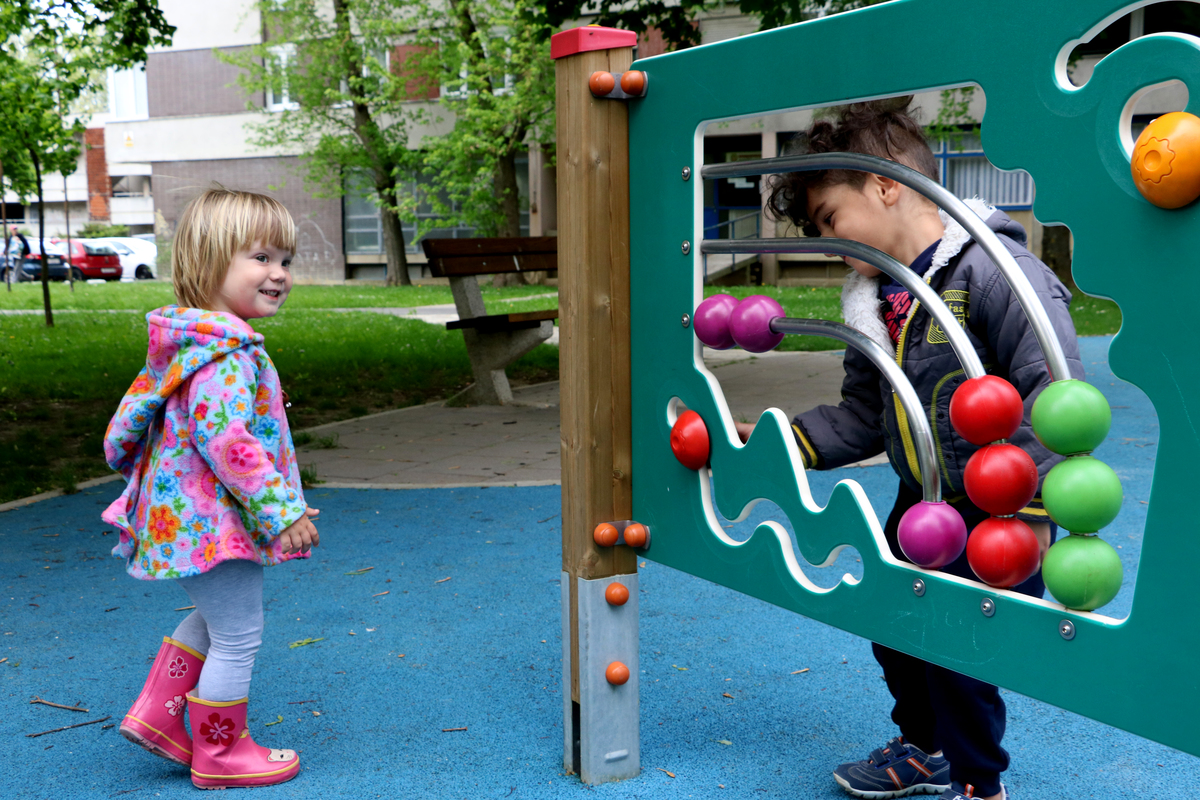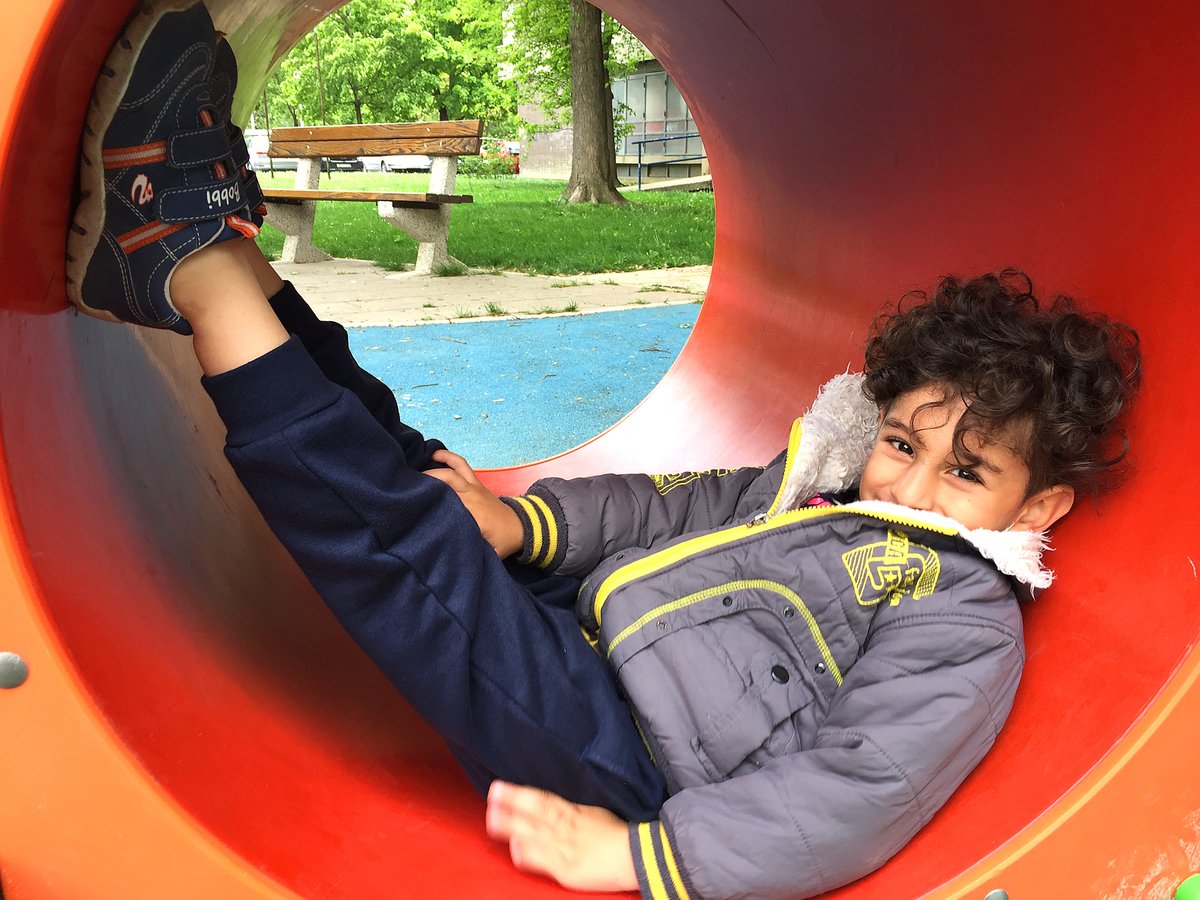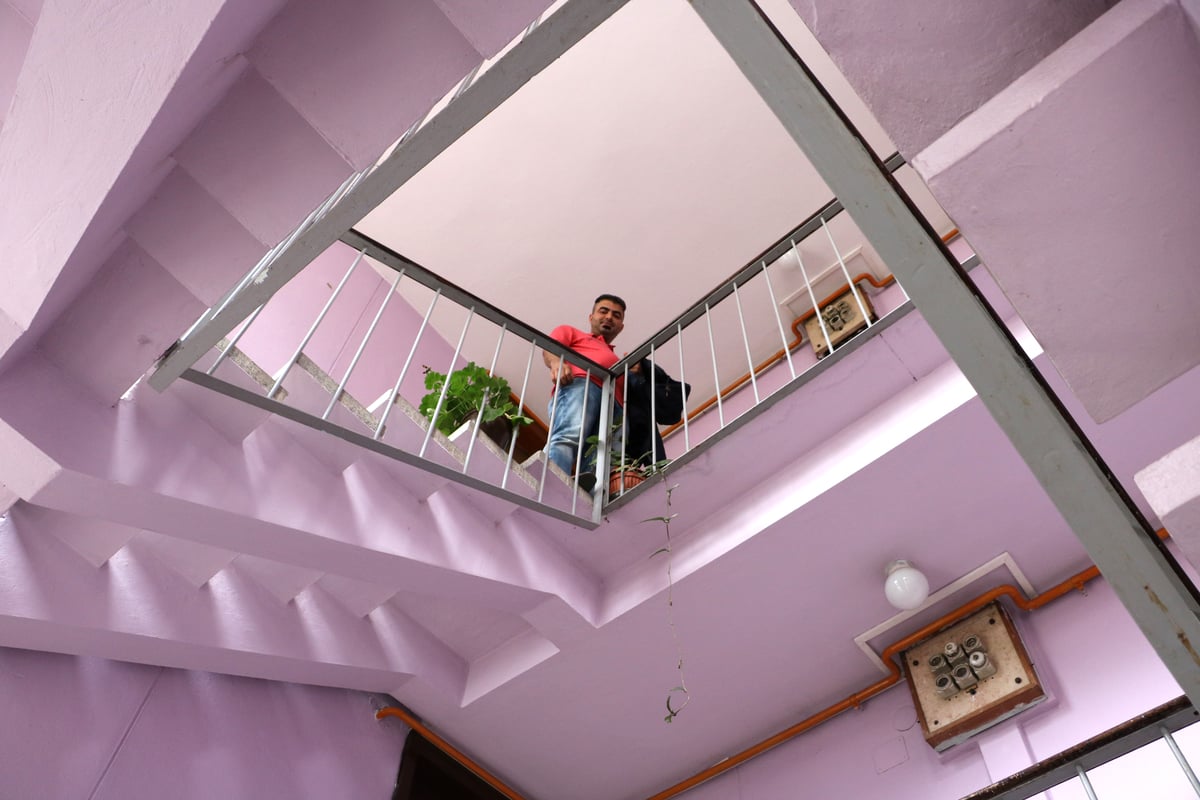Refugees sent back from Austria find new hope in Croatia

Refugees sent back from Austria find new hope in Croatia
Wissam watches his son playing in a sandpit outside their flat. In a nearby apartment, Ali is getting ready to go to a job interview. The two Iraqi refugees lost heart after Austria sent them back to Croatia, but are now settled in Zagreb where they are starting to recover their faith in the future.
Wissam Al-Obaidi, 36, and Ali Hussein Abalsad, 27, were returned to Croatia under the Dublin Regulation, which establishes criteria for deciding which European state should consider an asylum seeker’s application. In their case, legally, Croatia was the country responsible for considering their application.
“It was a terrible blow when I was sent back,” says Ali. “I was depressed, not just for myself but for my family waiting in Iraq. I had made an effort to learn German and now I had to start learning Croatian.”
“I just wanted a safe place for my family,” says Wissam. “It didn’t have to be Austria or Germany. In retrospect, I think I should have applied to Croatia in the first place.”
“It was a terrible blow when I was sent back."
Croatia, still recovering from the Yugoslav wars of the 1990s which left it to cope with refugees from the region, was at the centre of a new emergency in 2015/2016 when 650,000 asylum-seekers from the Middle East and beyond crossed the border at Tovarnik.
Since then, Croatia has also started to receive asylum-seekers under the European Union (EU) relocation scheme from Italy and Greece. To those granted asylum, the government gives welfare benefits, and rent-free apartments for two years. Until recently, Croatia did not provide language classes for refugees but the Ministry of Education has announced it plans to tackle the issue.
“The system of integration is not fully institutionalized,” says Giuseppe Di Caro, the representative in Zagreb of UNHCR, the UN Refugee Agency. “But I feel positive about it. Croatia is a country with a high quality of life.”
Wissam and Ali endured danger, separation from their loved ones and disappointment to reach the relative calm of Croatia.
Wissam worked as a taxi driver and hairdresser in Baghdad while Ali, from Babil (Babylon) province, was a truck driver, one of the most dangerous civilian jobs. Both said they felt constantly threatened by sectarian violence.
Delivering goods from town to town, Ali was held up by various militias who extorted money, stole his load and threatened his life. “It happened not just once,” he says. “I was held up at gunpoint, and I had my house burnt down.”
In desperation, the two men set out on the refugee trail, leaving their wives and children behind. “For one thing,” says Wissam, “I couldn’t afford to bring us all together and for another, I did not want to put my family through the dangerous crossing in a rubber boat.”
Wissam was fingerprinted when he crossed into Croatia in September 2015 but he made it to Austria, where he spent seven months in the Erdberg reception centre in Vienna.
“I was held up at gunpoint, and I had my house burnt down.”
“I volunteered, fixing pipes and windows, and started learning German,” he says.
The news he was to be sent back to Croatia nearly crushed him.
“I got the rejection in the post first,” he says. “I talked to a lawyer and put in an appeal. But before the appeal was even considered, the police turned up one morning at six am. They confiscated my mobile devices and clapped me in handcuffs. It was not just me. A lot of others were arrested at the same time.”
Ali tells a similar story of a dawn police raid that came as a shock. After 11 months in Vienna, he had started to invest emotionally in Austria. An Austrian family had even 'adopted' him.
From detention, the men were taken to the airport. Meanwhile, their families back in Iraq were in the dark because Wissam and Ali could not communicate.
At Zagreb airport, Wissam was afraid he was going to be held again and sent back to Iraq but instead he was taken to Porin reception centre.
“It was as good as a hotel,” he says, “but I was depressed. I just sat in my room and only came out for meals. I was so tired. I had waited so long in Austria and, as it turned out, all for nothing. Now I had to start all over again."
"Now I had to start all over again."
“But after a few days, the police came and said I had an interview. And after another 15 days, I had a second interview. This was the first step to me feeling hope again.”
The two men were granted asylum in Croatia. “When I was in detention in Austria, I wanted to die,” Ali says. “Here in Croatia, I started to believe in something again. I am grateful to the Croatian government.”
Once the men had obtained official refugee status, their families became eligible to apply for reunification.
In Baghdad, Wissam’s wife Shaemaa, a sports teacher, began packing for herself and their two sons, Ahmed, seven, and Yousif, four. The family flew via Cairo and Istanbul and arrived in Zagreb in January 2017.
Shaemaa attends Croatian classes run by the Red Cross and the boys go to school and kindergarten. Wissam has a job at a car wash and is proudly bringing home an income.
As for Ali, reunion with his wife and three-year-old son may take longer. He urgently needs to find a job to be able to contribute towards his family’s travel expenses. Interviews at an ice-cream factory and a construction site came to nothing but he hopes his latest attempt to get employment at a supermarket will be successful.
“Third time lucky, inshallah [God willing],” he says.


